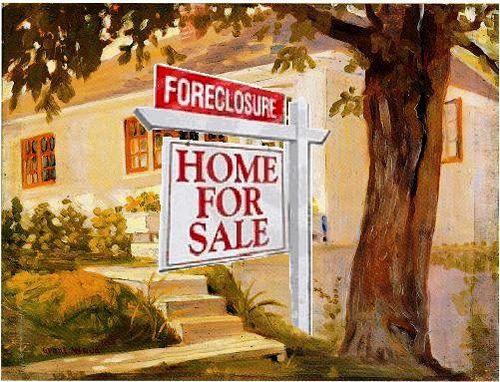
MEDIA ROOTS — Freddie Mac, aka the Federal Home Loan Mortgage Corporation, is one of America’s largest mortgage-insurance companies, chartered in 1970 by the federal government “to provide liquidity, stability and affordability to the U.S. housing market.” However, the mortgage giant recently invested $5 billion in complex securities that pay when mortgage holders are unable to refinance and take advantage of the current record-low interest rates, effectively betting against U.S. homeowners.
If Freddie Mac’s declared corporate mission is to make it “easier for consumers to afford a decent house or apartment,” then why is the company profiting from U.S. homeowners’ inability to refinance and reduce interest rates on their mortgages? These investments constitute a clear conflict of interest, particularly since Freddie Mac also determines which homeowners are eligible to refinance. Freddie Mac is essentially betting that homeowners will not be approved to refinance at lower interest rates, and meanwhile, creating new regulations, restrictions, and fees to limit eligibility, which a Federal Reserve paper qualified as “difficult to justify.”
Following the subprime mortgage crisis and a taxpayer-funded government bailout of over $200 billion, Freddie Mac, along with fellow GSE Fannie Mae (aka the Federal Home Loan Mortgage Corporation), were taken over by the U.S. Government and placed into conservatorship under the Federal Housing Finance Agency (FHFA) in September 2008, an agency created under Bush. The FHFA is, therefore, responsible for overseeing and regulating the lenders’ business practices. However, recent reports of these unsavory transactions by NPR and nonprofit newsroom ProPublica raised the question of whether the FHFA’s interest is to help U.S. homeowners, or simply to ensure the companies’ financial success.
Indeed, Catherine Austin-Fitts, former Assistant Secretary of Housing and Federal Housing Commissioner, has described collateral fraud in the housing market contributing to the 2007 housing bubble collapse and economic meltdown of 2008:
“It’s funny how few people need to be involved [to enable this level of fraud], particularly when you’re hiding behind the Federal credit. So, if you’ve got control in the right places at Fannie, Freddie, and FHA, particularly, through the systems. It’s a surprisingly few people. What you do need is for everybody in 3,100 [U.S.] Counties involved in real estate to just shut up. So, for example, you saw appraisers who knew that the appraisals were just, you know, going out of control and made no sense. And if you had an appraiser who wouldn’t play ball, he’d kind of be dealt with. So, you had this sort of five to ten percent who objected to the corruption and would try and do something and would be dealt with in a variety of ways. But what you needed was for everybody to just play along and not ask questions.”
Today, some in Congress are asking a few questions about Fannie and Freddie, but will that be enough to protect the public interest? Republican Senator, Johnny Isakson, of Georgia said, “We have a situation that’s obviously, at best, unsavory and, at worst, immoral.” Democrat Senator Barbara Boxer argued, “They’re actually, in my view, turning against their mission. And I truly blame the regulator here, Mr. DeMarco, because he had to approve this instrument.” Notably, both stop short of questioning legality.
In response to allegations of conflict of interest, FHFA Director Edward DeMarco responded that the investments, known as inverse floaters, were “in the class of normal business transactions” and he is “completely puzzled at the notion that something immoral went on here.” FHFA regulators maintain that a “firewall” separates the investment portion of Freddie Mac from the regulatory branch, which creates rules that make it difficult for homeowners to refinance. The Inspector General of the FHFA is conducting an “open evaluation on capital markets, which encompasses this issue.” The investments have drawn some scrutiny from members of Congress. And the Senate is holding a hearing today on Capitol Hill to question Freddie Mac’s investment practices.
The current situation with Freddie Mac’s dubious investments in inverse floaters brings to mind the housing crisis caused by the breakdown of credit default swaps and the mortgage-backed securities they insured, which caused millions in the U.S. to lose their homes through foreclosure, often with rushed robo-signing, through threats and intimidation, particularly in immigrant communities, and without being able to provide appropriate documentation. For example, Wells Fargo, which profits from private prisons housing entire immigrant families, has been linked with also targeting immigrant families to force them out of their homes and expedite foreclosures.
Ultimately, mortgage companies like Freddie Mac and Fannie Mae essentially granted bad loans, often predatory loans, and bet that borrowers would default. Now that mortgage interest rates have dropped, Freddie Mac, a government-controlled, taxpayer-owned company, has chosen to deny homeowners lower interest rates, once again putting profits before people, and betting against U.S. homeowners. If the American Dream is in fact dead, then it’s corporate greed enabled by political corruption that killed it.
Written by Noelle Giambalvo Bortolai for Media Roots
Photo by Flickr user Mike Licht











This is a very interesting article and well written! Thank you for your efforts, Media Roots!